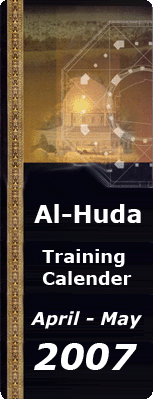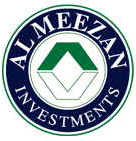| |
By M. Jamil Akhtar Khan
Currently, there is a significant number of people who obtain insurance cover from conventional insurance companies because they have no choice for an Islamic alternative. Once such an option is available which is competitive and equally comprehensive, they are likely to switch over.
A parallel in this matter can be drawn from the success achieved by Islamic banks. Once people’s confidence is built up on the basis of their respective Shariah boards, riba-free products based on Ijarah, Musharikah, Murabaha and the like, they are likely to switch over their deposits and financial transactions to these Islamic banks.
Likewise, once public confidence is achieved, people will voluntarily go for various Takaful options. The society on the whole will be benefited as funds now blocked in hedge against fortuitous losses, could be utilised for the growth of various businesses. The Takaful concept discourages malpractices and offers a viable alternative in the form of ‘surplus sharing’ which, in Malaysia and Sri Lanka, has attracted even non-Muslims towards Takaful products from the conventional insurance..
One important aspect that needs to be understood is that there can be no provision for the so-called “Takaful windows” for the conventional insurance operators. For one, it will confuse the minds of the general public who would like to have a freedom to choose between the products offered by a Shariah-supervised Takaful operator and those offered by conventional insurance companies.
Certain special interests are lobbying for such “windows”.There is a clear provision in law 6 “Takaful Rules 2005” that allows any conventional company to completely switch over to Takaful mode in a non-reversible way.
Furthermore, any institution or even a conventional company can set up an entirely separate Takaful company under the law with the requisite capital. Thus there is no justification for “window” operations within the conventional set-up. Such a-move will kill the very purpose of presenting Takaful as a Shariah-compliant alternative to the conventional insurance.
Secondly, there is an irreconcilable difference in concept between the two modes since conventional insurance, by its very definition, is a risk-transfer mechanism. This mechanism, again, is unacceptable in Islam since. “Every bearer of burden shall bear his own burden”.
Takaful, on the other hand, is a risk-sharing mechanism that allows for a transparent arrangement of cooperative sharing of risks by pooling individual ‘contributions’ for the benefit of all and hence eliminates the basic ingredients that prevail in the conventional insurance rendering it un-Islamic. These are “gharrar” 6 meaning “uncertainty”, “maiser” 6 meaning “gambling” and “riba” 6 meaning “usury”. Such basic conceptual difference is not there in case of banks, except only “Riba”.
Furthermore, whereas a very high capital, i.e. Rs6 billion, is required to set up a new bank, a separate Takaful company can be set up with only Rs80 million in case of general Takaful business and Rs150 million in case of Life/Family Takaful.
Though the government is considering reviewing and progressively enhancing these figures to around Rs300 million by the year 2011, still this amount has no comparison with the capital required to set up a new bank.
Thus capital is no constraint for cash-rich conventional insurance companies in setting up separate Takaful companies.
Similarly, there is no dearth of professional manpower in the insurance industry. It was only due to relatively slow career progression opportunities in insurance circles that forced several of their energetic employees to seek better opportunities in the Middle-East and elsewhere.
Had these companies provided conducive growth environment by way of streamlined succession planning, such young insurance professionals would have been working in Pakistan.
A similar situation existed for aspiring banking professionals some ten years back. When more opportunities became available on opening of new banks, several of such professionals returned from the Middle-East bringing with them rich experience. Likewise, there are a number of our insurance and Takaful professionals working in the Gulf who wait for such more opportunities.
Even otherwise, there are enough middle-management professionals, many of whom work in the recently established companies and are waiting for an opportunity to earn their incomes through an Islamic insurance company. Probably the prospect of loosing such employees scares those companies and they are looking for “short-cuts” in order to keep their employees 6 and their clientele too!
Another aspect that needs to be taken into account is the possible adverse impact on the potential foreign investors in case the so-called “windows” are allowed to conventional insurance companies. These foreign investors are keen to invest in new Takaful ventures since they have been assured that no “windows” would be allowed and the same has been specifically stated in the “Takaful Rules 2005” enforced in September 2005. Now, if the government reverses that decision, this will send a negative signal about the inconsistencies of the government’s policies.
The writer is the chief executive officer, Takaful Pakistan Limite
|








